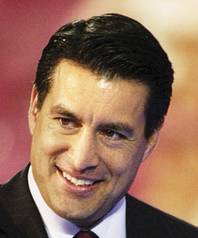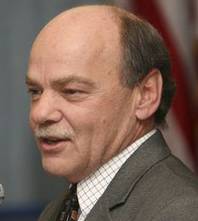Saturday, June 18, 2011 | 2 a.m.

Brian Sandoval

Keith Rheault
Sun coverage
CARSON CITY — The most significant potential change to Nevada’s education system passed by the Legislature has nothing to do with teacher tenure or seniority. Instead, a bill signed last week by Gov. Brian Sandoval dramatically changes who is in charge of the state’s education system, putting the governor in greater control of K-12 education.
Senate Bill 197 calls for replacing the 10-member elected Board of Education, which oversees the state Education Department and its 156 employees and the superintendent of schools, with a seven-member panel: four elected from each of the state’s congressional districts and the remaining three appointed by the governor, with recommendations from Senate and Assembly leaders.
Additionally, the governor will appoint and be able to fire the superintendent of public instruction, who currently serves at the pleasure of the Board of Education.
The bill “will turn out to be the single biggest feature in improving our schools,” said Ray Bacon, president of the Nevada Manufacturers Association, which has pushed for conservative changes to education policy. He noted that since the time of Gov. Grant Sawyer, in the 1960s, governors have campaigned on the promise of improving schools. Once in office, “they found out fundamentally they had no control, no authority.”
Dale Erquiaga, senior adviser to Sandoval and a former Clark County School District staffer, said the governor will have more authority over things such as professional standards for teachers, how to rescue failing districts and testing. He will have at his disposal a vast amount of data on student test scores and school performance, which critics say are being underused by districts and the Board of Education.
“The governor will finally have direct authority over education in our state,” Erquiaga said.
But the change won’t happen overnight, or with unanimous consent.
State Superintendent Keith Rheault has a contract through March 2013. He said he will not seek a fourth three-year term. (He spent nine years as a deputy superintendent.)
The Board of Education “reluctantly” supported changing its composition, Rheault said. But both the board and Rheault opposed having the superintendent directly serve the governor.
“The current system provides a better check and balance to keep issues less political,” he said. “I have to work with the governor’s office, the board, the Legislature.”
He wondered what will happen on issues such as school vouchers, a policy on which the Board of Education and governor disagree.
The Nevada State Education Association, which represents teachers, also opposed changing how the superintendent is appointed.
Craig Stevens, a lobbyist for the association, said the changes could bring drastic shifts in policy, depending on who is in the Governor’s Mansion.
“Education policy does not happen right away,” Stevens said. “The Department of Education, education in general are not ships you turn quickly. Kids are going to see one policy reform, and then four years or maybe eight years later see a different direction.”
A new superintendent and new board won’t be implemented until 2013.
Bacon, who served on the state’s blue ribbon task force for education reform, said Sandoval won’t have to account for the quality of education, given the time frame for implementing the changes. But he predicted future governors would be praised or criticized based on the performance of K-12 schools.
“Whether schools improve is going to be a huge factor in whether governors are re-elected,” Bacon said.

Join the Discussion:
Check this out for a full explanation of our conversion to the LiveFyre commenting system and instructions on how to sign up for an account.
Full comments policy